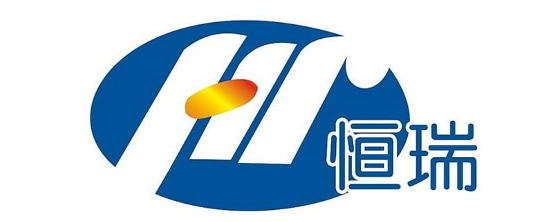Hengrui Pharmaceutical’s anti-PCSK9 monoclonal antibody has been approved for market, making it the 7th domestic product!
January 15, 2025
Source: drugdu
 400
400
 On January 10th, the latest announcement on the NMPA official website showed that Hengrui Pharmaceutical's injection of Ruika Xidan Kang has been approved for marketing.
On January 10th, the latest announcement on the NMPA official website showed that Hengrui Pharmaceutical's injection of Ruika Xidan Kang has been approved for marketing.
The indications for this drug are: for adult patients, on the basis of controlling diet, it can be used alone or in combination with statins for other lipid-lowering therapies. It is suitable for patients with primary hypercholesterolemia (including heterozygous familial and non familial) and mixed dyslipidemia who still cannot achieve the target level of low-density lipoprotein cholesterol (LDL-C) after receiving moderate or higher doses of statins; Meanwhile, for adult patients with non familial hypercholesterolemia and mixed dyslipidemia, it can also be used as a monotherapy option to effectively reduce low-density lipoprotein cholesterol (LDL-C), total cholesterol (TC), and apolipoprotein B (ApoB) levels.
Recaticimab (SHR-1209) is an anti-PCSK9 monoclonal antibody developed by Hengrui Pharmaceutical. The drug can increase the expression of LDLR on the surface of liver cells and promote LDL-C clearance by binding to circulating PCSK9, thereby achieving the goal of reducing serum LDL-C levels.
The approval of the marketing application for Ruika Xidan Kang is based on three carefully designed Phase 3 clinical studies (SHR-1209-301/302/303), all of which are multicenter, randomized, double-blind, placebo-controlled parallel trials. Specifically:
The SHR-1209-301 study focuses on the efficacy and safety of Rui Ka Xi Dan anti monotherapy in the treatment of non familial hypercholesterolemia and mixed hyperlipidemia patients.
The SHR-1209-302 study evaluated the efficacy and safety of the combination of Rekaxidan and other lipid-lowering drugs in the treatment of non familial hypercholesterolemia and mixed hyperlipidemia patients.
The SHR-1209-303 study focused on heterozygous familial hypercholesterolemia patients and explored the efficacy and safety of the combination of rivastigmine and other lipid-lowering drugs.
These three studies were led by Fudan University Affiliated Sun Yat sen Hospital/Sun Yat sen Memorial Hospital, Capital Medical University Affiliated Beijing Anzhen Hospital, and Guangdong Provincial People's Hospital, with the participation of more than 100 research centers nationwide. A total of more than 1500 adult subjects with primary hypercholesterolemia and mixed hyperlipidemia were included. Research data shows that the primary endpoints of all three studies met the predetermined efficacy criteria and achieved significant clinical improvements. The research results indicate that both monotherapy and combination therapy with other lipid-lowering drugs can significantly reduce low-density lipoprotein cholesterol (LDL-C) levels in patients with primary hypercholesterolemia (including heterozygous familial and non familial) and mixed hyperlipidemia. Meanwhile, the overall safety and tolerability of the drug were good in these patients.
Primary hypercholesterolemia refers to hypercholesterolemia without clear secondary factors, which can be divided into non familial and familial hypercholesterolemia based on whether it is caused by genetic mutations. Among them, heterozygous familial hypercholesterolemia (HeFH) is an autosomal dominant genetic disease caused by mutations in low-density lipoprotein receptor (LDLR) related genes. Mixed hyperlipidemia is characterized by hypercholesterolemia accompanied by elevated triglycerides (TG) and/or decreased high-density lipoprotein cholesterol (HDL-C).
LDL-C is a major risk factor for the occurrence and development of atherosclerotic cardiovascular disease (ASCVD). Research has shown that for every 1mmol/L decrease in LDL-C, the risk of ASCVD events can be reduced by 20% to 23%. However, currently the mainstream cholesterol lowering drugs in clinical practice, such as statins and cholesterol absorption inhibitors, have poor patient tolerance and require daily medication, resulting in poor long-term compliance and unsatisfactory LDL-C control status. Therefore, safer, more effective, and more compliant lipid-lowering methods are particularly urgent.
This time, Hengrui's Ruika Xidan antibody has been approved as the 7th PCSK9 monoclonal antibody in China and the 3rd domestically produced, with considerable competitive pressure.
According to a press release from Hengrui Medicine, Ruika Xidan Kang has a more flexible dosing frequency, which is expected to provide patients with new treatment options and improve their blood lipid management.
Source: https://pharm.jgvogel.cn/c1482080.shtml
By editorRead more on
- 20-Valent Pneumococcal Vaccine Approved for Clinical Trials January 20, 2026
- ADC205 Tablets Received Approval for Drug Clinical Trial January 20, 2026
- Sifang Optoelectronics makes strategic investment in Changhe Biotechnology January 20, 2026
- Mingde Bio plans to acquire a 51% stake in Hunan Lanyi through capital increase and acquisition January 20, 2026
- accelerating the transition of CLL treatment into a “chemotherapy-free era”. January 20, 2026
your submission has already been received.
OK
Subscribe
Please enter a valid Email address!
Submit
The most relevant industry news & insight will be sent to you every two weeks.



